
16 May, 2018
PATA Annual Summit 2018: A chance to move beyond clichés and Censorship by Sponsorship
Gangneung, Korea — A confluence of recent global events has set the stage for this week’s PATA annual summit in Korea to be a potentially historic game-changer – but only if the speakers rise to the occasion. Focussing on the theme of “Building Bridges, Connecting People,” the summit will bring together one former United Nations secretary general and two former UN World Tourism Organisation secretaries-general, two tourism ministers from Africa and Zambia and two millennial Faces of the Future, both Muslims, in an event that could and should disrupt the traditional comfort zones for travel industry events at large. For the first time, the industry has an excellent chance to ponder its greatest challenge – moving beyond boring buzzword clichés and Censorship by Sponsorship.
The summit will take place against the backdrop of major geopolitical twists-and-turns in Asia and beyond, including two shock-and-awe disruptions. Korea, which last hosted a PATA annual conference in 2004, attracting a record-breaking attendance of nearly 2,150, is on the verge of a peace breakout. In Malaysia, a corrupt government has been swept aside by a 93-year-old prime minister who has proved to the incoming generation of young millennials that the supposedly outgoing ageing generation can be of great value in times of crisis. Fortuitously, two of PATA’s most prominent events, the Annual Summit and the Travel Mart, are both being held in these two key destinations this year.
This good news is offset by plenty of bad news. In the incendiary Middle East, the Jewish state of Israel continues its live-and-let-die assault on the Palestinians. The unaccountable hyperpower United States has unilaterally abrogated its nuclear treaty with Iran and openly declared its regime-change agenda. Conflicts continue unabated in Yemen and Syria.
Closer to home, threats are bubbling. In Myanmar, until recently considered the blue-eyed boy of global travel & tourism, a brutal policy of repression against the Rohingya Muslims has damaged the country’s image. In the Philippines, President Duterte has unleashed a War on Drugs unfettered by any human rights considerations and forced a controversial closure of Boracay island. In Thailand, home of the PATA HQ, a military dictatorship has enforced peace and stability but at the cost of the country’s long-cherished freedoms. In Cambodia, media restrictions are being stepped up. In India, communal tensions fanned by the Hindutva-oriented ruling party and the mounting cases of rape, often against minors, are impacting the country’s safety and security image.
Perhaps the greatest threat is environmental. For the first time, a study has been released proving that this gargantuan growth which the industry loves to brag about is also actually a major cause of global ecological destruction.
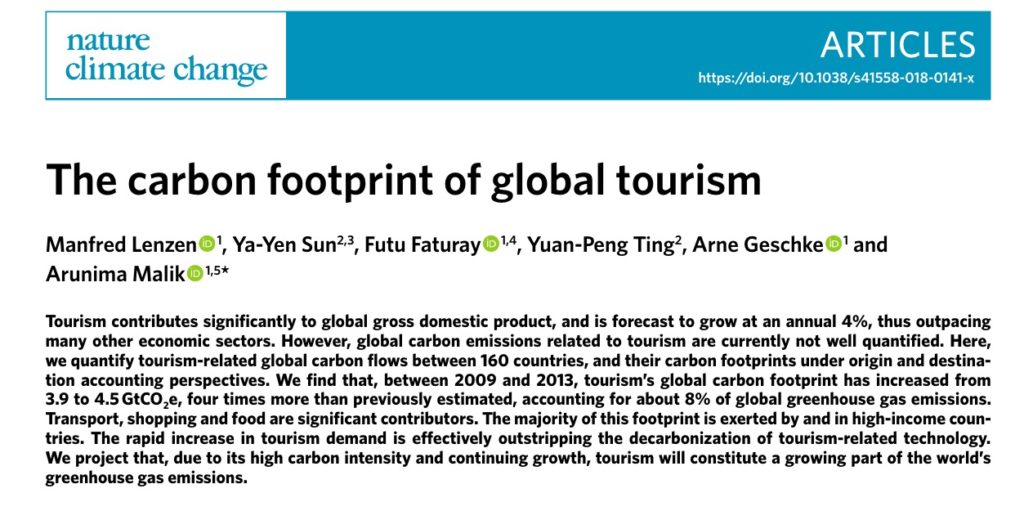
It is exactly such external shocks – and the absence of free and open debate about their impact — which were among the many factors responsible for PATA heading south in the first decade of the 21st century. The association, which claims to be the voice of Asia-Pacific tourism, was left both voiceless and clueless as the industry got hit by a back-to-back series of economic crises, political upheavals, conflict, pandemics and natural disasters.
Precisely because the past three years have been free of such mega-disruptions, PATA CEO Mario Hardy has been able to slowly rebuild the association. This week, he will be presenting performance reports and business plans that show good financial and membership results. Predictably, they are full of the usual cliché buzzwords that make industry executives drool – “thought leaders,” “exponential leadership,” “achieve sustained growth and relevance,” “innovative mindset,” “delivering positive benefits,” “engaging with the next generation of leaders,” “adapt, be agile and be creative,” “more efficient and effective Association,” “long-term sustainability,” etc, etc.
Ten years ago, PATA was trying to redefine relevance with a slightly different set of cliché buzzwords:


This is what PATA says today:

Here’s another slogan coined at the last PATA conference in Jeju, Korea, in 2004.
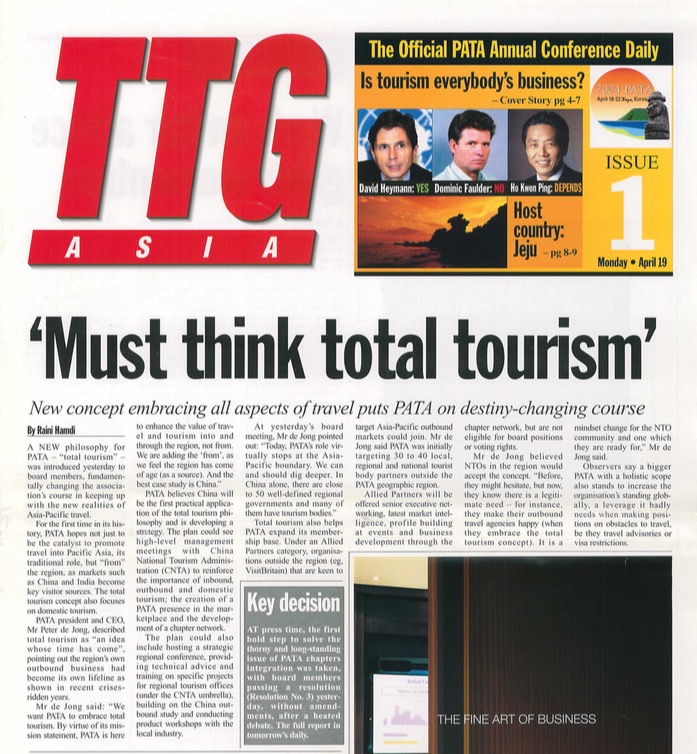
Indeed, the PAS summit 2018 slogan is remarkably similar to the theme of the PATA annual conference in Macau in 2005.

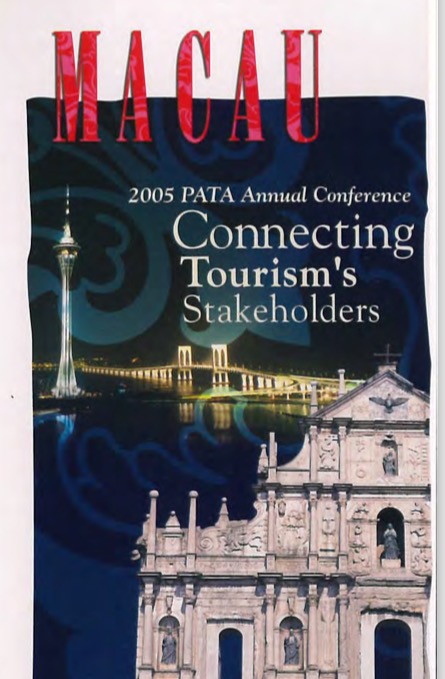
As PATA learned the hard way, none of those buzzwords, slogans and clichés do any good when the next external shock or Act of God strikes. If business goes down, members review their costs, and PATA membership is high on the chopping block. It’s as simple as that.
Perhaps the biggest mistake Mr. Hardy is making is devoting no time to learning the lessons of history. This learning-curve does not appear anywhere in the future business plans nor in the performance analysis. The focus is mainly on sustainability, technological change and human capital development, with numerous futuristic activities directed at millennials on all these themes. The PATA future business plan talks of advocacy. So have all the future business plans in the last three decades. All are missing one key point – what exactly does PATA advocate, especially on threats and challenges outside the traditional comfort zones?
Filling that void opens up a clear opportunity for this conference to be a game-changer and reset the global tourism agenda – but only if the speakers rise to the occasion.
The keynote speaker, Mr. Ban Ki-Moon, was 8th Secretary-General of the United Nations from 2007 to 2016. Mr. Francesco Frangialli was secretary-general of the UNWTO from 1997 to 2009, and Mr. Taleb Rifai from 2010 to 2017. All three have enormous experience in the world of diplomatic horse-trading. While in office, they are constrained by diplomatic niceties. Now, they can be liberated to take a far more realistic approach.
Take Mr. Ban for example. He was an ardent supporter of the original set of eight Millennium Development Goals which then became 17 Sustainable Development Goals. This agenda needs huge amounts of money to succeed. The biggest drain on global development resources is the military-industrial complex. Its primary revenue stream comes from conflict and mayhem. This threat to global peace and stability in turn impacts on safety and security. As Mr Ban knows well, solving conflicts is a deeply political problem. However, the millennial North Korean leader, Kim Jong-Un, is proving that conflicts can be ended at the stroke of a pen. That opens up a great opportunity for Mr. Ban to focus on what role travel and tourism can play in encouraging more leaders to end conflicts, especially in this year marking the 100th anniversary of the birth of Nelson Mandela, perhaps the greatest forgive-and-forget icon of peace and stability in the modern era.
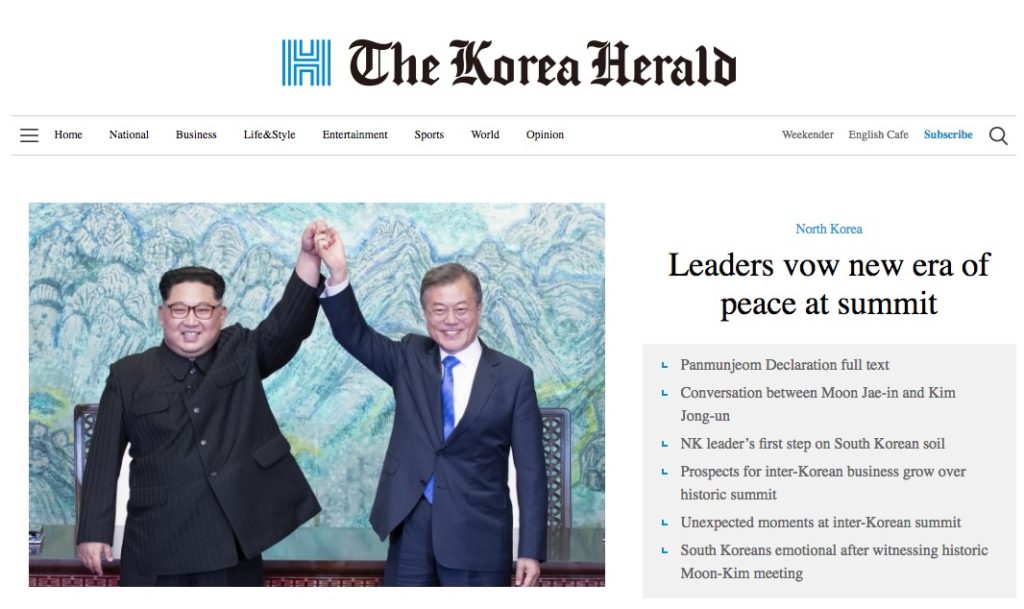
The same with Mr. Rifai. He was the first UNWTO secretary-general from the Arab and Islamic world. Its primary challenge – and the greatest revenue spinner for global arms dealers — is the Israeli-Palestinian conflict. A brief period of calm prevailed in the 1990s when peace was being negotiated by leaders rising to the occasion. In November 1995, a single bullet by a Jewish terrorist assassin put an end to that, and it has been downhill ever since. The death of peace has impacted tourism to some of the most spiritual, cultural and environmentally pristine parts of the world, including Mr Rifai’s own home country, Jordan. As a major advocate of the peace agenda, can Mr. Rifai offer some practical tips on how travel and tourism can restore it? How can it encourage more leaders to bury their egos and focus on the greater good? How can it help reduce and recycle global military budgets into more productive areas, such as sustainable tourism development? How can it mobilise its combined voting power to bring more responsible leaders to power?

Here, perhaps PATA’s two Faces of the Future can also go beyond the usual comfort zones. Mr Faeez Fadhillah is the outgoing Face. Mr Abdulla Ghiyas is the incoming Face. Both are young millennial Muslims. Mr Fadhillah’s home country, Malaysia, will host the next PATA Travel Mart in September 2018. All across the Islamic world, racial profiling, Islamophobia and visa restrictions, are having significant impacts on travel by global Muslims. While plenty of data is available on the market potential of Islamic travel, no study has ever been done to pinpoint the negative result of this blatant discrimination. Will the young Muslim millennials step up to put this item on the agenda?

One of the most recurring clichés is thought leadership. It appears several times in the PATA summit documentation. For the first time, a PATA summit will see a “debate” amongst “thought leaders” about the greatest challenge facing travel and tourism. This indeed IS the greatest challenge facing travel and tourism: Putting ALL issues on the table, discussing them freely and openly without fear, favour or rancour. If PATA does not clearly and realistically recognise the problems, it’s claim to relevance and advocacy is at risk of being diluted and discredited.
Indeed, crafting a realistic agenda is important to the PATA revival process as more small and medium-size enterprises are becoming members, as against “big-boys” such as Tourism Australia and the Canadian Tourist Commission, which have pulled out. Few international and big companies see value or relevance in PATA membership. The SMEs, however, do. In addition to business networking, they want global associations to collectively advocate and solve problems they are individually too small to handle. In its heydays, PATA’s vast network of SME members, especially the chapters, made it a vibrant platform for debate and advocacy. Today, the total PATA membership is only a minute microcosm of the real numbers of travel & tourism players in Asia.
Perhaps the biggest constraint on thought leadership and debate is the big boys themselves. Mr. Hardy is trying to lower PATA’s dependence on membership income by boosting participation in sponsored activities and events. However, if sponsors do not like certain issues on the programme, they will not support the event. I call it Censorship by Sponsorship. If sponsors had a higher level of maturity, they would encourage Democratic Dissent and Debate in a way that promotes Openness, Transparency and Accountability, what I call the 3D and OTA philosophy. Attendance at PATA events will soar if delegates can enjoy a good debate, listen to alternative perspectives and be intellectually stimulated rather than listen to boring speakers preaching to the converted.
Take two more issues. One topic on the PAS 2018 agenda is gender equality. That is extremely relevant because women comprise the vast majority of the travel and tourism labour force. But an emerging corollary issue is being swept under the carpet: Sexual harassment. Why is that not on the table? Will it figure in the discussion? Will somebody speak out?
Another key topic is sustainability, which has been on the PATA agenda since the 1980s. The fact that it is still on the table means that travel & tourism has been unable to achieve a balanced scorecard between economic growth and ecological preservation. Today travel and tourism has been over-successful, to the point where countries are closing down beaches to give Mother Nature time to take a breather. For more than 30 years, PATA has been issuing annual statistical reports applauding growth in visitor arrivals. No report has ever been issued showing the annual ecological impact of all this growth. If such a report were to be issued, all those hordes of emerging Indian and Chinese tourists may not look so desirable. That would not go down very well with tourism ministers. Another issue outside the comfort zone? Censorship by sponsorship?
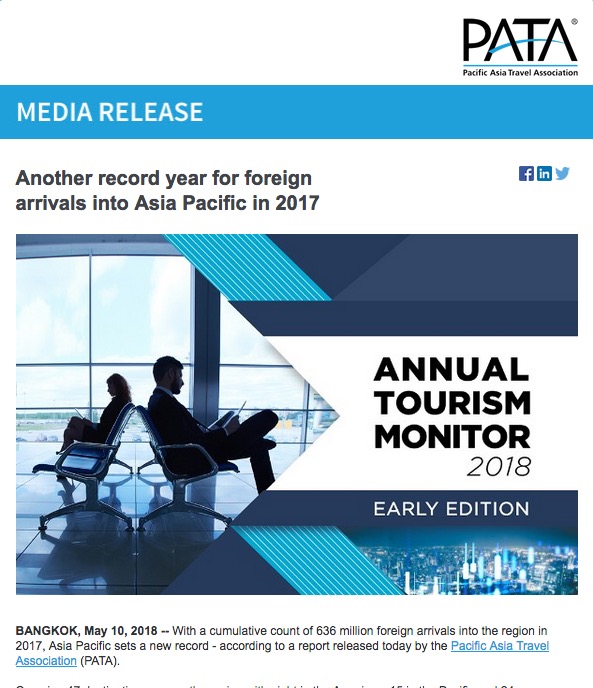
Many more such issues can be debated. The role of technology overnight has become much more controversial. Nearly all travel technology forums are sponsored by companies which are now under fire for invasion of privacy and collaboration with the U.S. government to drive geopolitical agendas. Any chance of sponsors allowing that topic on the agenda?
Rather than just brag about their past achievements with another set of motherhood and apple pie statements, speakers can redefine “thought leadership” by encouraging travel and tourism to raise its level of maturity, broaden its mindset, move beyond Censorship by Sponsorship, and take a realistic approach to tackling its emerging challenges. Academia calls this critical thinking. It means listening to everyone, including NGOs, trade unions, human rights and animal rights campaigners, and all other stakeholders. The theme of the PATA annual conference in Jeju in 2004 was Tourism is Everybody’s Business. That “everybody” must be taken literally. It should not be applied selectively, and it should certainly not be skewed only towards the CEOs and the rich and the famous.
That is the greatest challenge facing travel & tourism. If PAS 2018 can facilitate just a reset of this mindset and agenda, it will prove to be a rip-roaring success.



Liked this article? Share it!